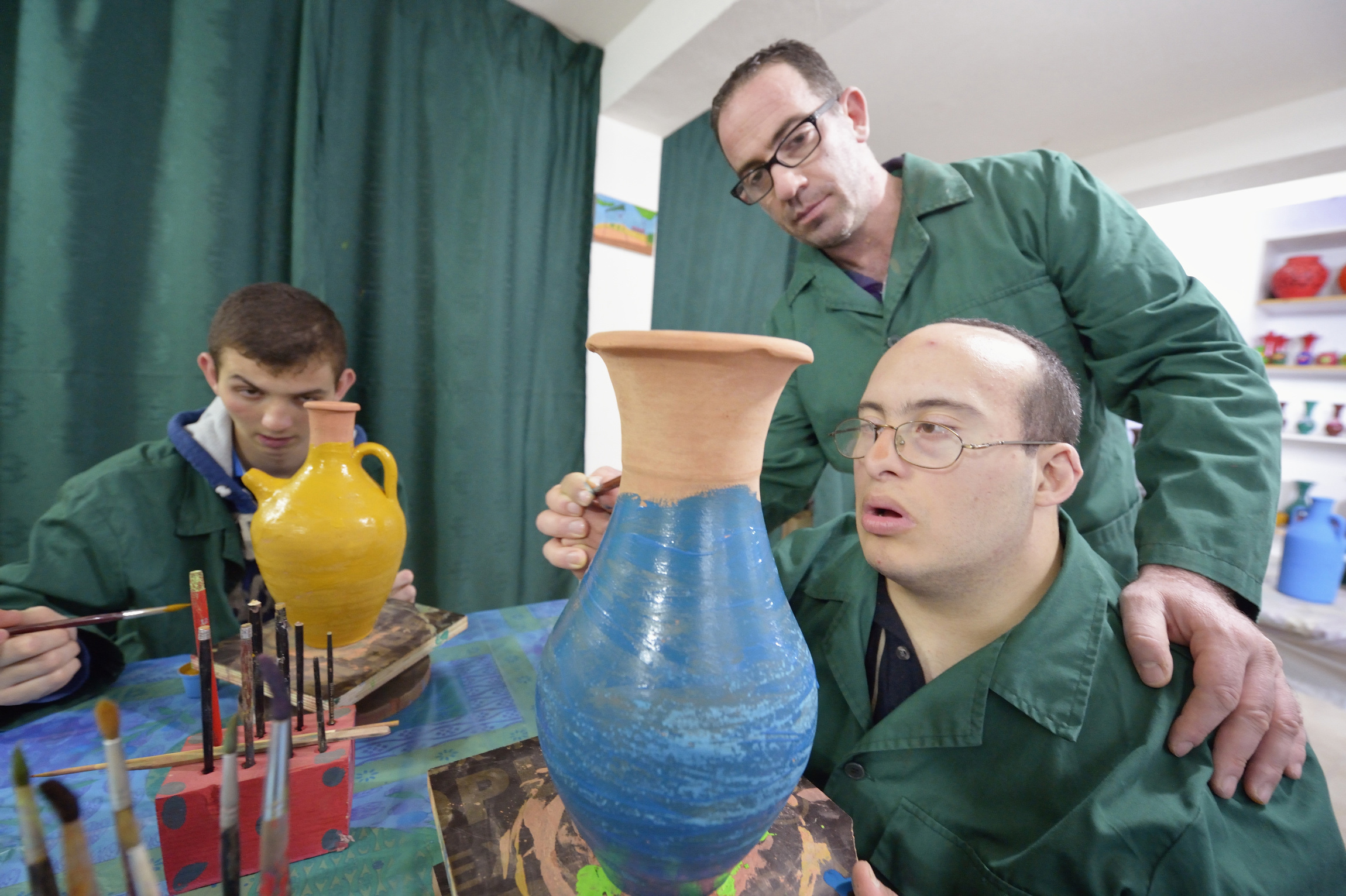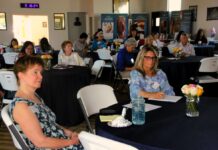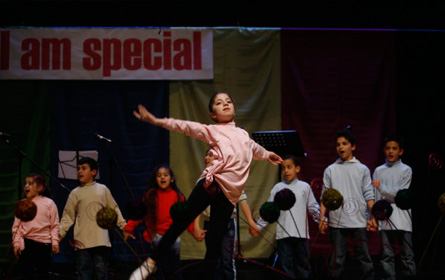
BEIRUT (CNS) — When Samar Shalhoub and some friends wanted to better protect children in Lebanon from abuse and violence, they turned their dream into a nonprofit organization. They registered with the government and got to work holding workshops on bullying and ways that children could protect themselves against abduction, sexual abuse and violence. But, Shalhoub readily admits, they knew little about how to organize their organization.
“We had a dream, but that wasn’t enough. We had to develop strategies to get us where we dreamed we wanted to go, and reliable tools to get us there,” she told Catholic News Service.
Shalhoub, a music teacher at St. Joseph University, a Jesuit-run institution in Beirut, says they learned their lesson when someone asked to see their financial records.
“We had a sweet box, one of those boxes where someone had bought sweets in the airport. We put all our receipts in there, sometimes with no stamp or no date, and over time the ink faded on some of the receipts and you couldn’t even tell what they were for,” she said.
Shalhoub said her organization, Together for a Safe Childhood, got involved in a capacity-building program run by Catholic Relief Services, the U.S. bishops’ relief and development agency. Together for a Safe Childhood was one of several nascent nongovernmental organizations, or NGOs, that CRS started nurturing.
“We learned that NGOs can’t be run freestyle,” Shalhoub said. “We’ve got to have tough structures. We had lots of volunteers, and to work with them effectively we had to develop a long-term plan and enhance our managerial skills.”
“Goodwill simply wasn’t enough. We had to create policies and procedures. And we had to develop a financial system. It’s not enough to be transparent and have a good reputation. We need a system that proves we’re transparent.”
Shalhoub says the sweet box has been replaced by a computer running QuickBooks accounting software, and the organization’s board of directors has changed to better reflect Lebanon’s cultural diversity.
“We learned that there should be some balance and equality among the board members, and we looked at ourselves and realized we were all Christian, all women, and all the same color. So we created some diversity, encouraging men and people of other religions to join the board. This has been a positive change, making our NGO stronger and more sustainable,” Shalhoub said.
The CRS program, funded by the Middle East Partnership Initiative of the U.S. State Department, initially sought to strengthen the capacity of civil society organizations in Lebanon, Tunisia and Algeria. But Algeria’s government quit issuing visas to CRS staff in 2014, forcing the agency to pull the plug on that operation and concentrate its work in just Tunisia and Lebanon.
Ramzi Hage, a program manager for CRS, said the program focuses particularly on organizations working around issues affecting women, youth and the environment. The organizations must be less than 3 years old and must be legally registered with their governments. The organizations must be vetted by the U.S. government to make sure they have no links to terrorist organizations.
Hage said the organizations also must “fit with our Catholic vision and identity.” CRS has been criticized in recent months for allegedly collaborating with organizations supporting reproductive health services.
CRS partners with the schools of business and social sciences at St. Joseph University in carrying out the project. In addition to a yearlong series of intensive workshops, they developed a mentoring process that provides the organizations with experts to sit down and help coach them through developing the organizational infrastructure that will make them effective.
“We focus on building institutions, on putting systems into place. We learned in previous projects that if you only focus on building the capacity of individual persons, they might leave, and their experience goes out the door with them,” Hage said.
“So we emphasize setting up systems, templates and processes that will stay with the institution, so that even if people leave, the accumulated experience stays behind.”
Hilda Bairamian, a professor in the business school at St. Joseph University, is the project manager.
“In NGOs, there is a lot of energy, a lot of volunteers, but people don’t know how to channel it. We’ve helped them learn how to channel that energy, and not to lose it, as they work out their vision and mission and plans and objectives. It has to be organized, and they’ve got to find a way to measure how they’re doing and how they can improve,” said Bairamian, who heads a team of mentors who work with the participating groups.
After a year of work, the NGOs can apply to the project for a small grant. Proper management of that gives them credibility at the end of the program, when they can meet with grant-making groups from around the world at a “donors’ fair” hosted by CRS and St. Joseph University.
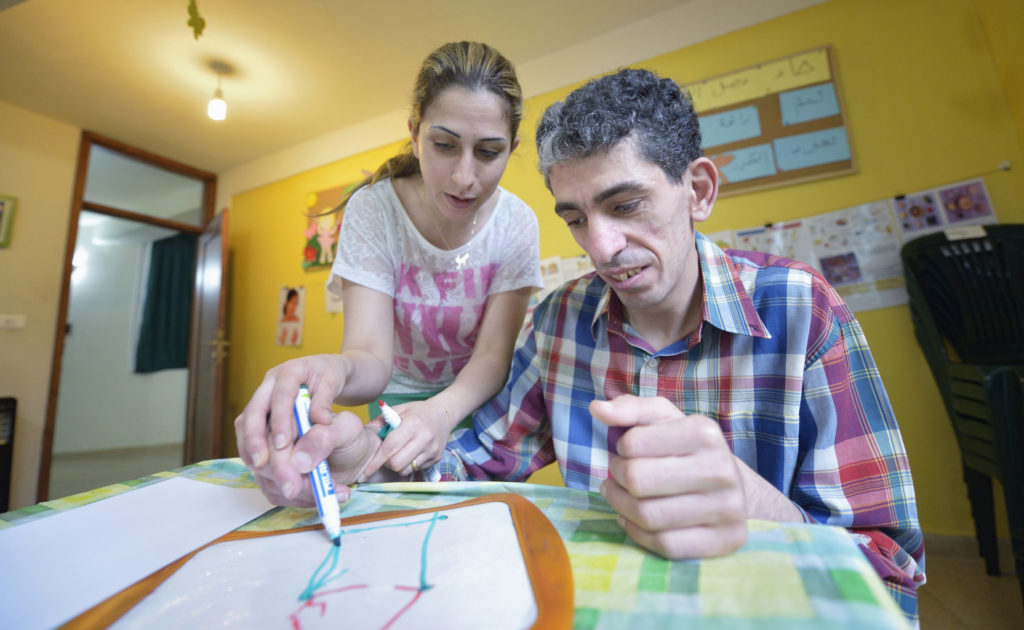
One organization that graduated from the program is Phenix Group Homes, a residence and day center for people with intellectual disabilities. Founded by two psychologists three years ago and located in the hills outside Beirut, it had no trouble finding clients from wealthy families that could pay the fees. Yet Phenix also wanted to take in poorer clients, for which they would need external support. That meant getting their organizational house in order.
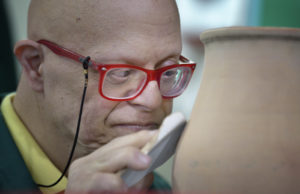
“We are professional psychologists, not accountants. Yet we were a small organization, and we couldn’t afford to bring in someone to do our accounting, so we did it ourselves. I did it on Excel, which I liked, but I made a lot of mistakes. Now we have switched to QuickBooks, and someone comes in once a week to help enter data. Soon we’ll need someone every day. That frees us up to do our work,” said Wadih Nassour, the organization’s director.
Like many of the organizations in the program, Phenix also does public advocacy. Its staff and residents recently participated in a demonstration in front of government offices in Beirut, demanding that a 2000 law on the rights of the disabled be fully implemented.
The group is reaching out in other ways, and Nassour says the institutional strengthening program has helped.
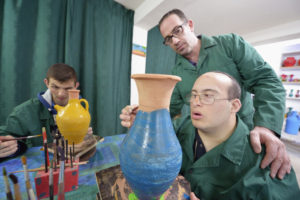
“To expand our work to help poor families, we needed support. And as we have obtained it, we’ve expanded, and now have two people living with us who have no families on the outside. They’ve brought tremendous happiness to our home, because they are people who really need things. We want to bring in more people like them. The other clients, if we weren’t here, could go somewhere else. But these two have nowhere else to go. They need a home and someone to love them. And they in turn have a tremendous love to give us,” Nassour said.
— By Paul Jeffrey, Catholic News Service.



